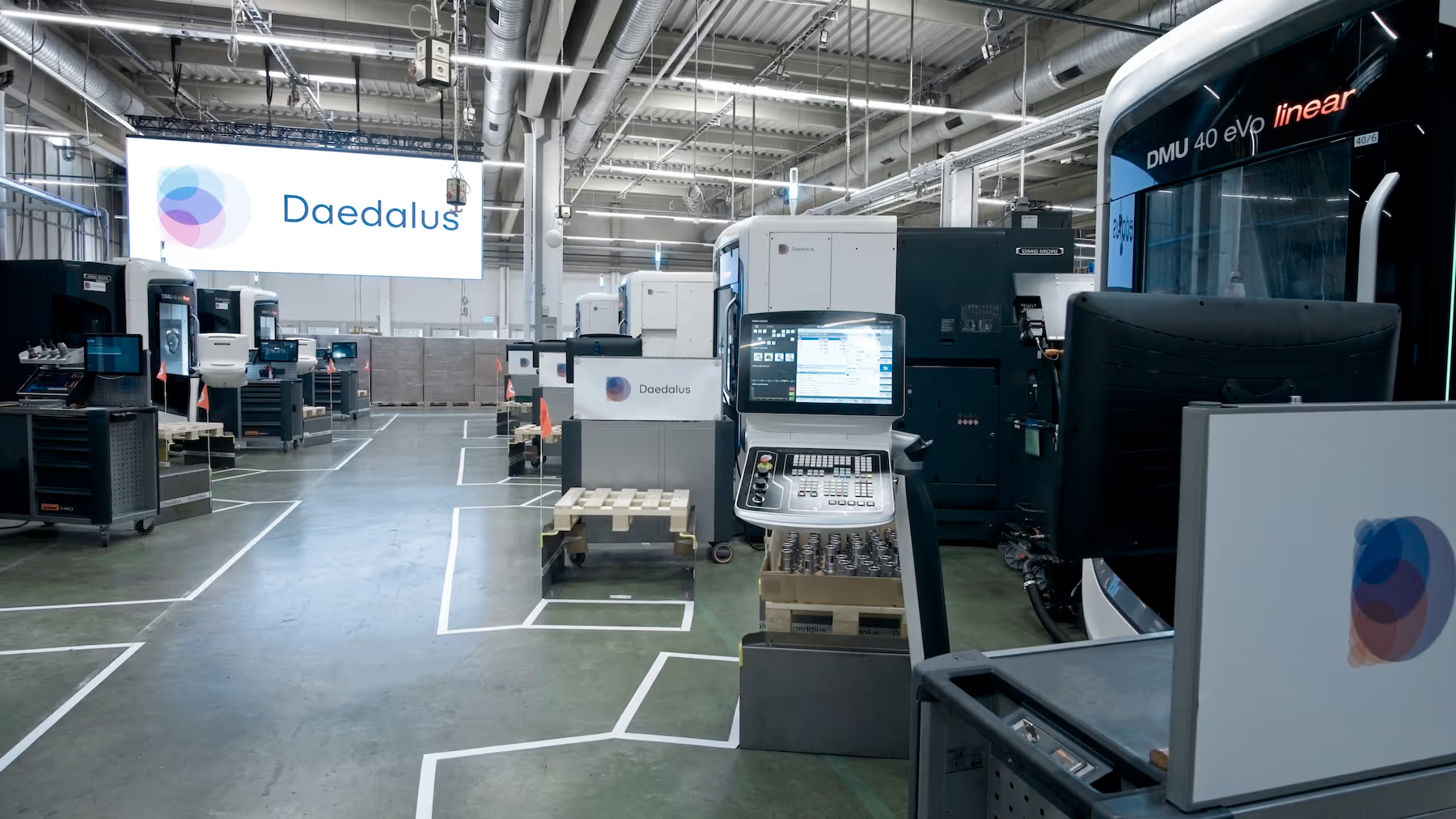Listen now
On December 2018, a cold winter day in Beijing, NGP Capital interviewed Charles Wang, the founder and CEO of Quiknos. Charles has a kind of innate self-confidence and calmness, as if he has everything under control. He was sincere and clear-minded as he talked with us about his story.
Charles graduated from Xiamen University and worked in Fujian province for more than ten years. He was transferred to Shenzhen in 2004. By the time he started his own business, Charles had spent nearly 20 years in the logistics industry, including 14 years at FedEx and more than 3 years at SF.
At SF, he was mainly responsible for the company's sales management, and later formed the medical department. The reason he created Quiknos is directly related to his professional experience and background.
Charles: “When I was setting up the medical department for SF, I contacted many customers, including medical inspection agencies, and found that their business is mainly concentrated in urban hospitals. Rural clinics were completely uncovered."
"Medical testing is one of the most important diagnostic methods in modern medicine, but most of the village-level clinics could not provide such services. This was a completely open field. It just happened that we had the ability to collect medical specimens for inspection, and I thought I could try to serve this market. In March 2015, I resigned from SF and started my own business.”
"Medical testing is one of the most important diagnostic methods in modern medicine, but most of the village-level clinics could not provide such services. "
In May 2015, Quiknos was officially established in Shenzhen, China. Quiknos provides medical test delivery services, including routine inspections, as well as special tests such as genetic testing and early cancer screening.
The entire service is built on their self-developed mobile app and a medical cold chain logistics operations system, which is monitored throughout the whole process. The business goes deep into the capillaries at the village level, providing remote villages with medical inspection services that are equivalent to the level provided at top hospitals.
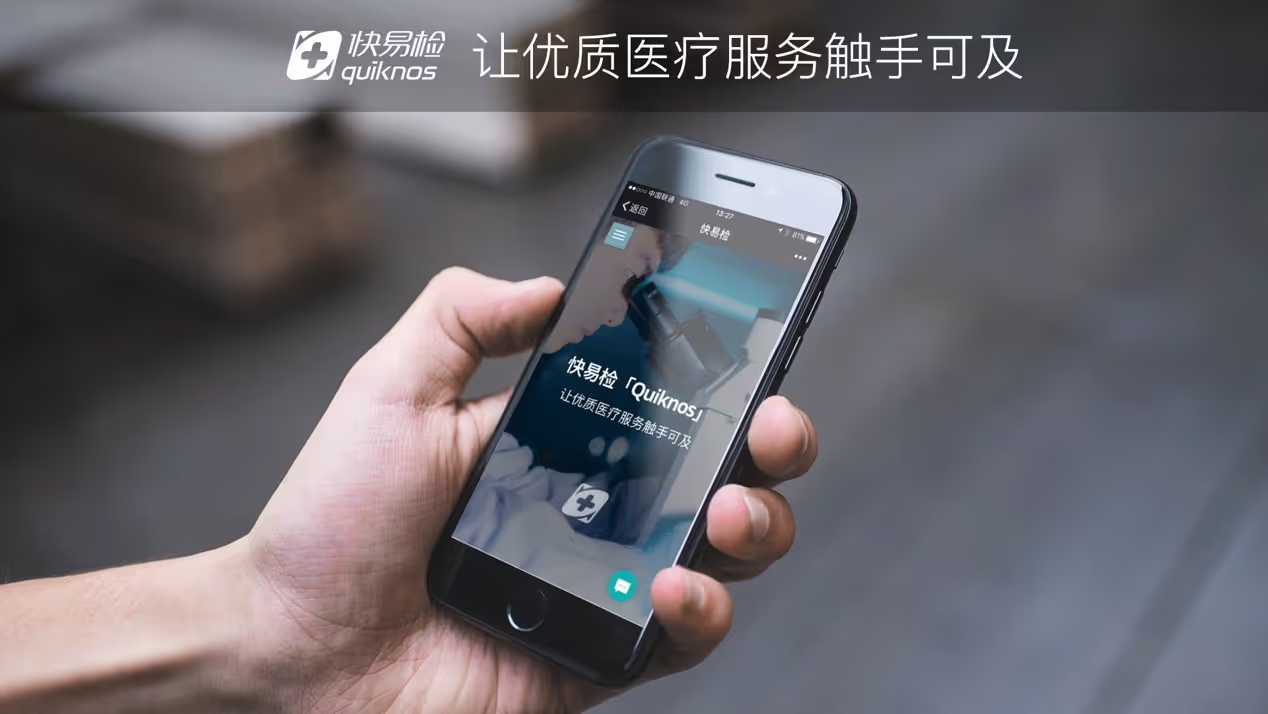
Today, after more than three years of operation, there are more than 800 vehicles running in more than 2,000 villages and towns every day. The business has spread over 30,000 village clinics in 55 cities over eight provinces, covering a population of 40-50 million. Cumulatively, services have been provided to more than one million people.
Quiknos has experienced rapid growth due to the fact that it has accurately captured a major pain point in the market. It operates using a solid approach based on deep insight into and understanding of the entire industry, and continuously strives to maintain its leading position in terms of technology and service quality.
Charles: “Medical cold chain logistics operations are a key part of the whole business. It is impossible to run this business without strong logistics capabilities. However the business is not just about logistics; more importantly, it is about how to deal with the village doctors and clinics as we work together. Our positioning is mostly about providing services to grassroots clinics to meet their unmet needs."
"Our business is not just about logistics; more importantly, it is about how to deal with the village doctors and clinics as we work together."
Practitioners in the medical industry are generally cautious. At first, they didn't know much about the business or the company, and it was impossible for them to simply hand a tube of blood to people with whom they were unfamiliar.
Charles still remembers how, at the very beginning, it took them two weeks to persuade a clinic in the Xiang'an district of Xiamen to draw two tubes of blood for inspection. Everything is difficult at the beginning. However, once one clinic kicks off the process, it is easier for other clinics to follow. Now that Quiknos has gradually gained in popularity, the business is expanding much more quickly; today it takes only one to two visits on average to develop a new clinic.
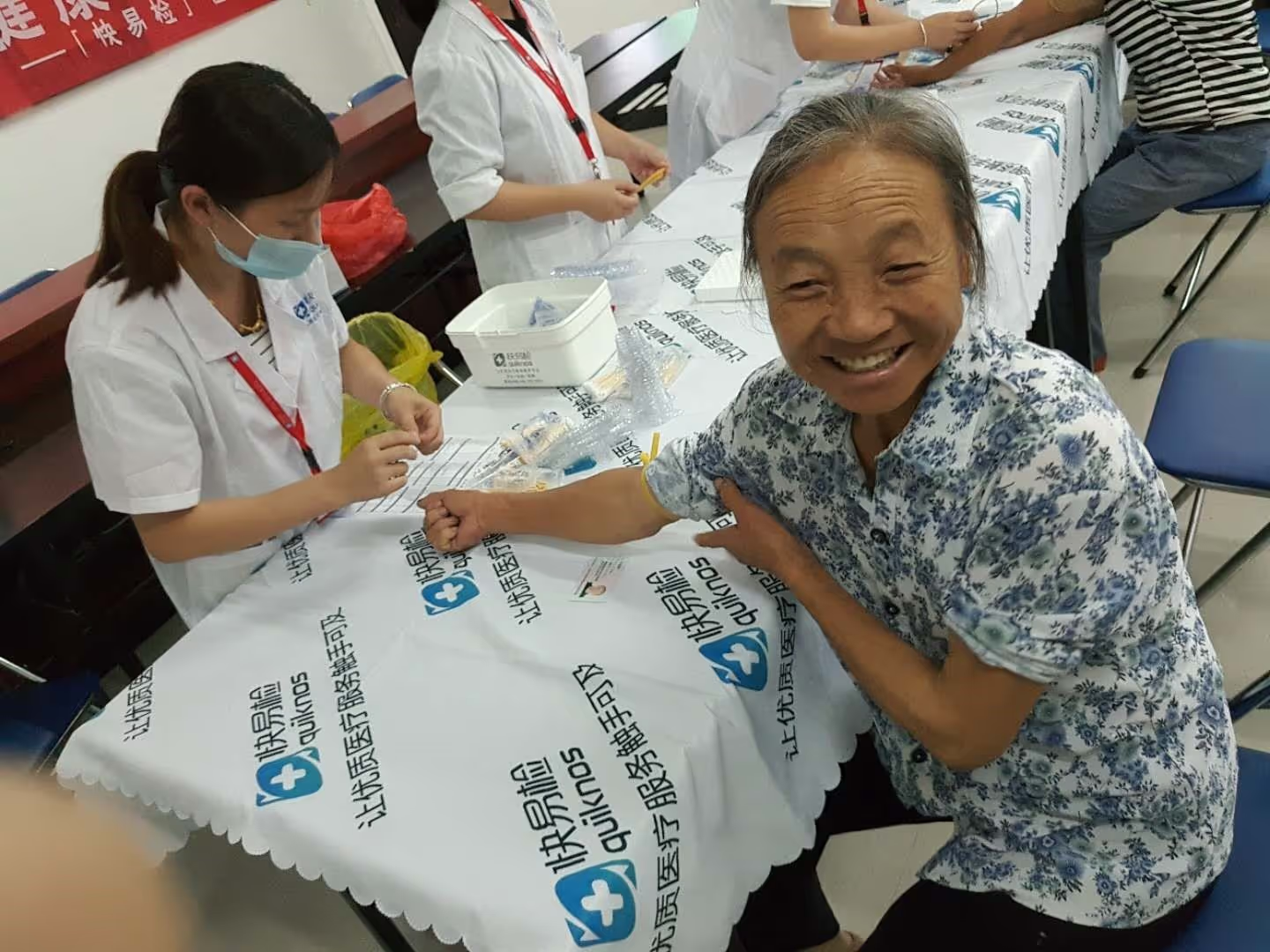
Charles: “There are certain barriers to entry in this industry. The build-up of a pharmaceutical cold chain business system takes time and capital. It is quite difficult for competing companies to reach our level in terms of the operational standards, the timeliness of sample delivery, and the speed of test reporting. Competitors in this market can only provide part of the solution at present; none of them can offer the whole cold chain process and full monitoring service that we provide."
'"The build-up of a pharmaceutical cold chain business system takes time and capital."
"Recently, we improved and upgraded our online tools, which has brought very significant results. Now, every day, 3,000 doctors place orders, read reports or obtain other consulting services through our app. The doctors we are working with have become very accustomed to using our app, which is also very helpful in keeping our existing customers.”
Talking about entrepreneurial experience, Charles believes that one of the biggest challenges at the beginning is building up the team. Initially, Quiknos had only a few people, and the office environment and conditions were not good. During recruitment, candidates would often enter the office and turn around right away. It was difficult to recruit outstanding talent, as only a few people had heard of the company or understood the company's business.
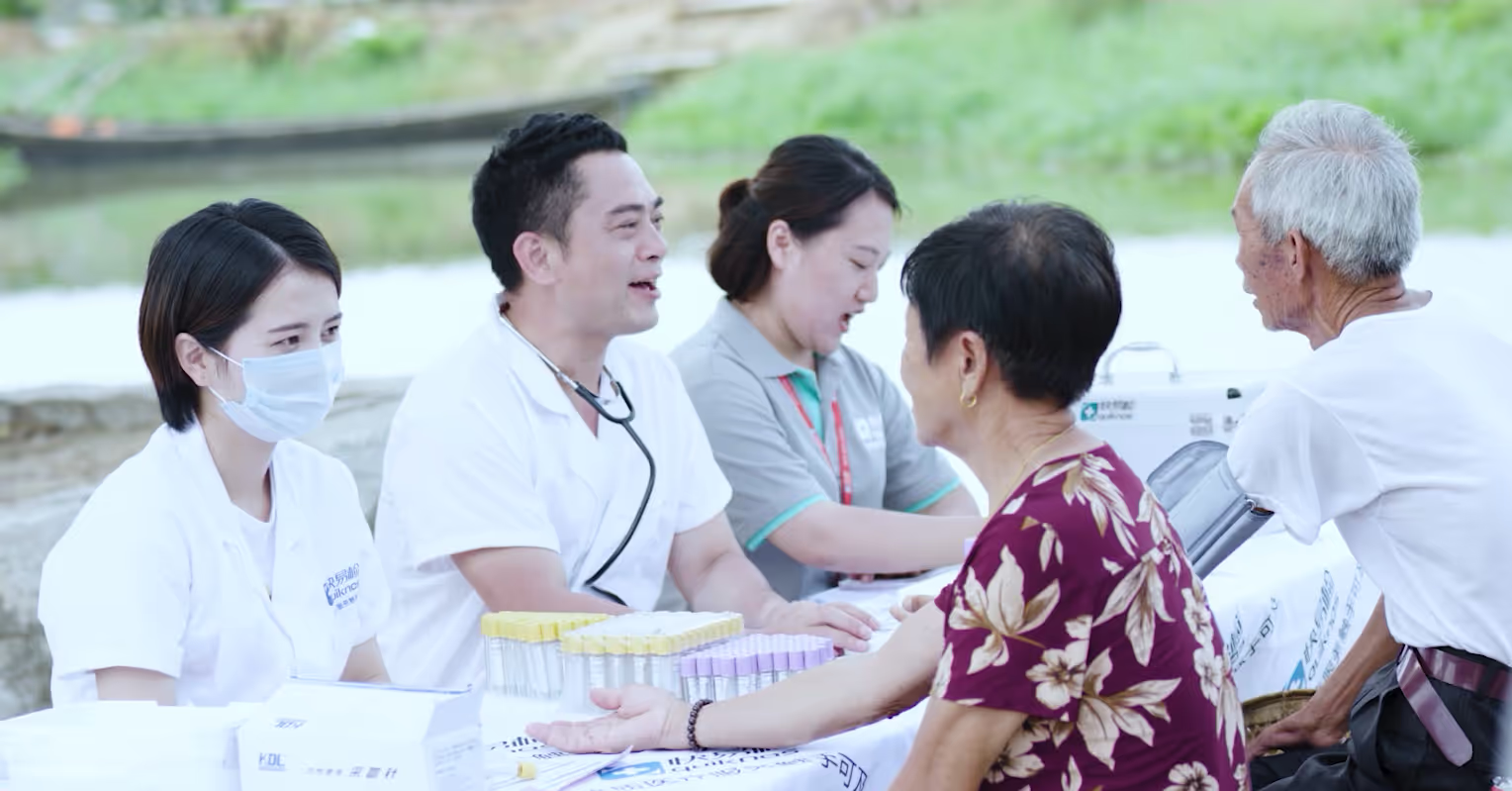
To address this, the company mobilized employees to bring in former colleagues, friends and acquaintances to join the cause. This helped Quiknos to gradually expand, and the company as it is today began to take shape. Currently the company has 900 employees. Talking about his team, Charles was filled with emotion.
Charles: “In October, we organized leadership training for the managerial staff. While people were introducing themselves, 90% of the managers mentioned that Quiknos was the first company in their life where they had become a supervisor or manager. I was touched deeply after listening. These employees came from towns, villages, and even rural areas. We provided these young people with a platform for career development and even entrepreneurship. Our company not only provides services with their own social value, but also creates value in the personal development of our employees. As the founder of this company, I really feel proud of what I am doing.”
"Our company not only provides services with their own social value, but also creates value in the personal development of our employees."
It has been more than three years since the company’s establishment. In Charles’ view, their cause is still at an early stage, as the market is very big and still has a great deal of potential for them to explore.
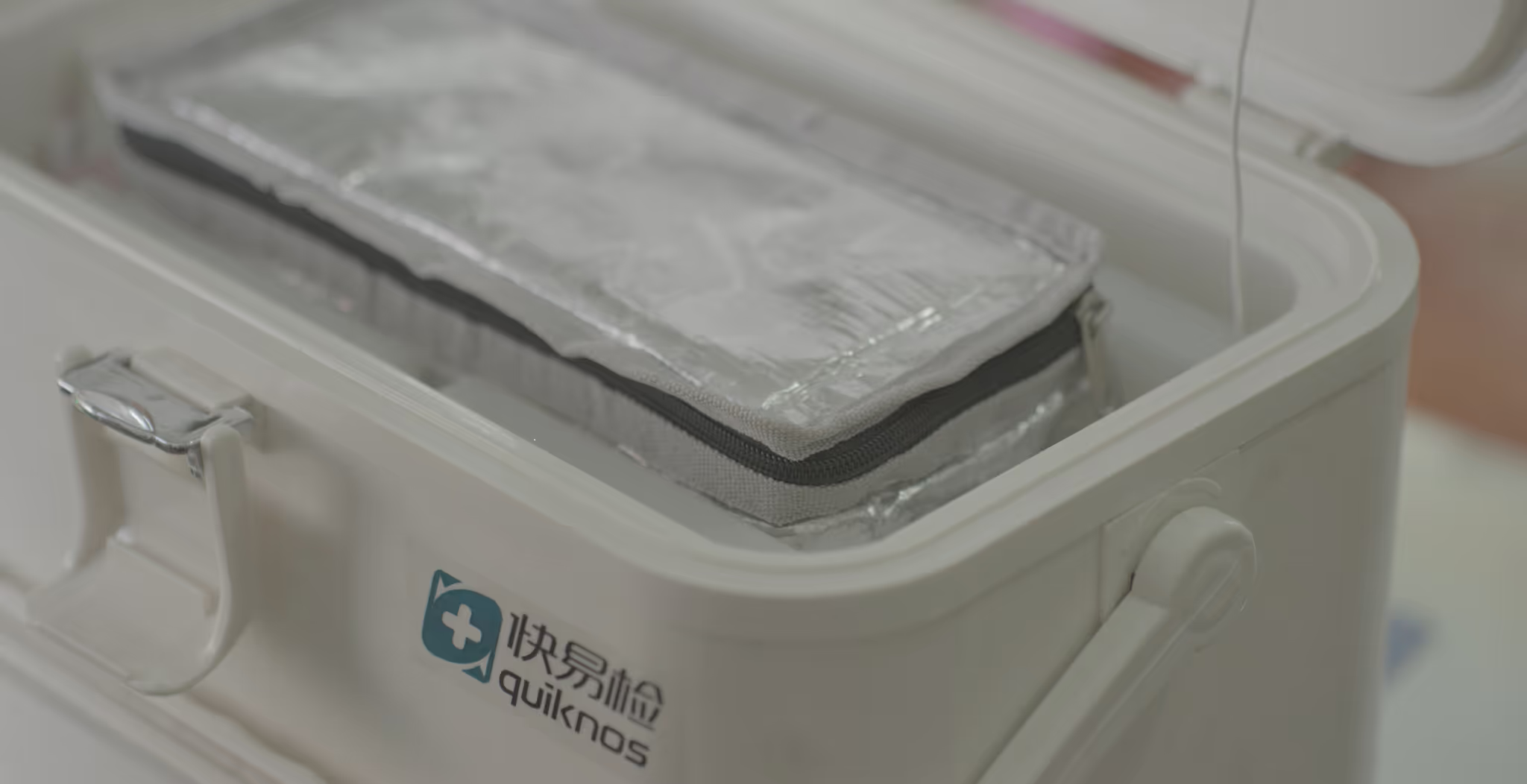
Charles: “So far, we have established a distribution platform for information, products and services for the primary healthcare market. The government policy in this area is positive – promoting tiered medical treatment, advocating universal health and improving public health facilities – which is very encouraging for our future development."
"Our positioning is to empower rural doctors and medical institutions by connecting them with more high-quality medical resources, including testing services, medical devices and medicines, doctor education, and new services such as telemedicine diagnosis, through our platform.”
Charles: “There are nearly 900,000 primary medical clinics in China. Our goal is to cover at least 200,000 of them over the next two years, benefiting 200 million people. Our mission is to make quality medical services available at your fingertips, and we have a long way to go.”
Finally, Charles shared his advice for entrepreneurs.
"The business that creates positive value will eventually succeed!"
Charles: “It's very simple. You need to do something that has positive value for the whole society and the communities you are serving. The business that creates positive value will eventually succeed!”

.svg)





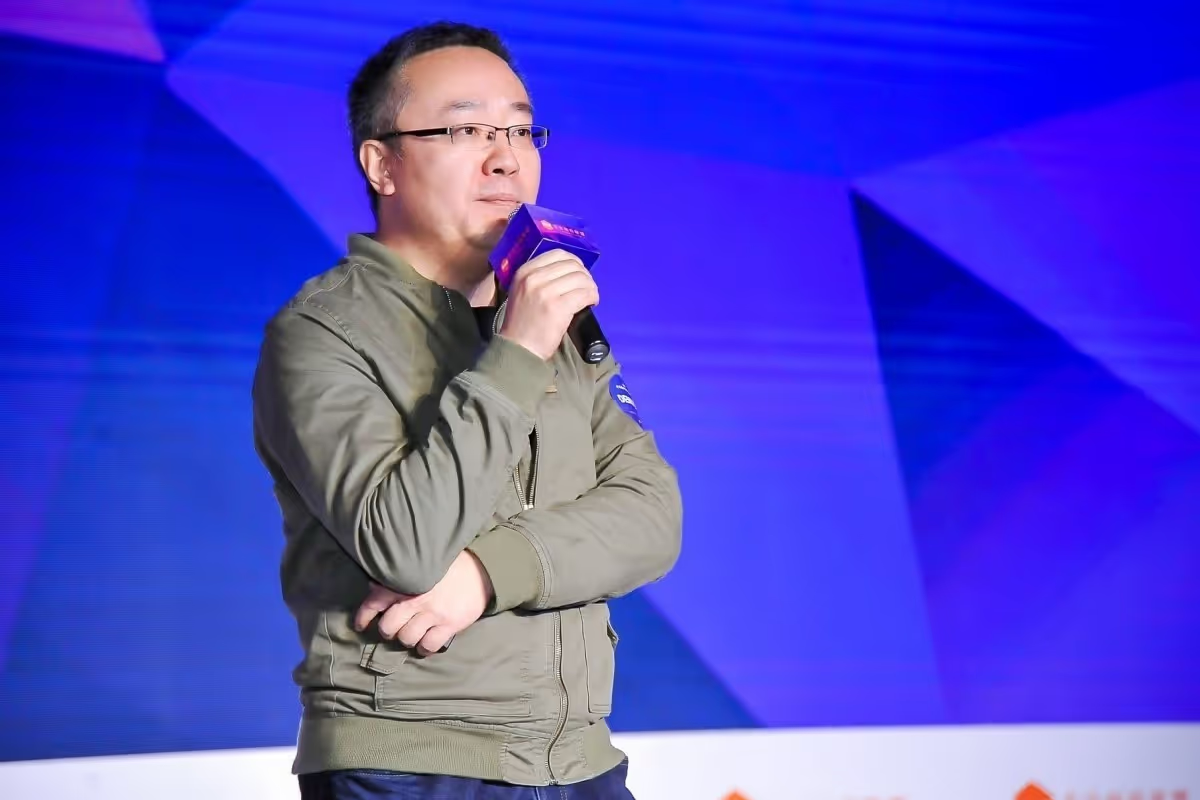
.svg)


